How to Freeze Food For Reheating
Recently I asked readers to let me know what they wanted me to write about. I received dozens of great responses including this one from Lee who said,
I do a lot of cooking in advance and would like to know if the various dishes freeze and reheat well. Or, can I freeze the food at a certain point in the preparation and add other ingredients (the ones that don’t freeze well) later? It would be wonderful if every recipe gave this information.
Lee, I agree. It would be great if all recipes came with instructions for freezing leftovers. Some do but most of the time they must expect us to cook for one sitting or finish everything that night.
I’m not a nutritionist or food scientist but I did a little research and came up with some guidelines that you may find helpful. There is lots of information on the internet that cover this topic and I suggest you do your own search for more detailed information on freezing foods.
Finding the Time to Cook Every Night
Most parents want to serve their kids nutritious and tasty meals. And most people want to eat meals that are nutritious and tasty.
The problem is that, between working, taking care of the house, getting the kids to tennis or physical therapy and still having a minute to sit down and relax, it is often hard to find the time to cook a complete, healthy meal from scratch every night. I know it is a problem that I run into at home quite frequently.
So what’s the answer?
Yes, you could hire a personal chef or go to one of those meal-planning places or just order take out, but all of that can get to be pretty expensive. Although we enjoy getting the odd take out meal every once in awhile, the answer for us is refrigeration and freezing.
Most foods can be stored for up to seven days in the refrigerator. That sounds like a long time, but here’s how to do it safely:
- Make sure that whatever food you are making gets cooled down quickly.
- Refrigerate the food pre-portioned, whether it’s enough to feed five or two. Reheating and cooling foods repeatedly can encourage bacterial growth, so only reheat what you are going to eat and leave the rest in the fridge.
- Reheat the food to at least 160 degrees F for 15 seconds.
According to some of my chef friends, food safety guidelines say that food should only stay in the temperature danger zone (between 41°F and 140°F) for no more than four hours.
So, the more quickly you can get it above 140 degrees F when you’re first cooking it, the more quickly you can chill it to below 41 degrees F and the faster you can bring it back up to serving temperature when reheating, the safer you will be. To err on the side of caution, though, I really wouldn’t recommend storing foods for more than five days, if you can help it.
Freezing Foods
I turn to the refrigerator first, because I can put almost anything in it without worrying if it will reheat okay. But, what if you want to store foods for a longer time, or what if you want to make more of whatever you’re cooking than you can eat in a week? Then, it’s time for the freezer.
Freezing can be a bit tricky, though. Not all foods freeze well, and when thawed, some are downright unpleasant. Remember these two cardinal rules, though, and you can still enjoy some very tasty frozen and reheated meals.
- When it comes to freezing, the faster you can do it, the better the texture and taste of the reheated food. Freezing foods slowly allows large ice crystals to form. This can adversely affect the texture of foods, especially foods that contain a relatively high concentration of water (milk, sour cream, cheese) and/or cell walls that can be ripped apart by crystals (most fruits and non-starchy vegetables). So, the same rules apply here as apply in refrigeration: chill foods before putting them in the freezer and freeze the foods in portions, or at least in thin layers (like spread out in 1 or 2 gallon freezer bags.
- Keep the air out and the moisture in. If you are planning on freezing food for long term storage, you will want to wrap it so a minimum of air can get in. The air can cause the surface of the frozen food to oxidize, changing the color, flavor and texture of the food. It’s still safe to eat, but just because it is safe doesn’t mean that it will taste good.The other thing that can happen if food is not wrapped very well is freezer burn. The ice crystals in the frozen food naturally want to be in the coldest part of the freezer, which is on the walls of the freezer itself. As the ice molecules migrate, they are taking moisture out of the food, resulting in dried out and tasteless dinners. The absolute best way to minimize oxidation and freezer burn is to use a vacuum-based food saver type solution. Since all the air is pulled away from the food and the bags are heat sealed, little to no air can enter, and little to no moisture can leave.If you do not have a vacuum sealer system, use heavy duty zip top bags and press as much air out of them as possible before sealing. Limit the amount of time that you leave the food in the freezer, too. I don’t care how well wrapped it is, nothing is going to taste good after being in the freezer for five years.
Here are some cooking guidelines if you are planning to cook specifically to freeze and then reheat later.
- For casseroles, undercook the starch by 3/4 to account for the starches softening while frozen. So, if the package calls for cooking pasta for 10 minutes, only cook it for 7-8 minutes. If the rice should be ready in 20 minutes, only cook it for 15 minutes before adding the additional casserole ingredients.
- Do not freeze anything with sour cream in it. Sour cream gets very watery after being frozen, affecting the reheating texture.
- For best results, don’t freeze any prepared foods for longer than a month. Guidelines might give some foods several months in the freezer, but since we’re talking about freezing recipes and not just ingredients, err on the side of caution for the best flavor and texture.
- The flavor of salt and herbs can get more powerful over time in the freezer. Under-season the food to be frozen, then season to taste once reheating.
- Consider only freezing a portion of the recipe and finishing it upon thawing. This is especially true with pasta dishes. Since it only takes a few minutes to cook pasta, you may as well just cook it fresh while reheating your frozen sauce.
- Think about freezing each portion of the meal separately. For example, if you want to reheat a stir fry, freeze the broth portion in ice cube trays rather than piling all the ingredients together to freeze. Freeze the protein and vegetables in bite-sized pieces. Then, when it’s time to stir fry you can throw a couple of broth cubes in a wok with the frozen protein and veggies and have a great meal in just a few minutes. When you freeze a bunch of different flavors together in the same container, the flavors have a tendency to get muddled up. By freezing everything separately, each ingredient maintains its own unique characteristics.
Since there are some foods that don’t freeze and reheat well, you can opt to cook most of your recipe ahead and freeze it, adding in the “problem ingredients” during reheating. These foods include:
- sour cream (gets very watery)
- cooked egg (becomes rubbery)
- cream cheese (becomes grainy and watery)
- cornstarch for thickening (thicken with cornstarch after reheating or use arrowroot, which freezes well)
- milk, skim, 1% and whole (they separate on thawing)
What Are Your Experiences With Freezing Foods?
We all experience freezing foods, whether purchased frozen, purchased fresh and then frozen, or after cooking. Personally, I’ve had all sorts of experiences with foods I’ve tossed into the freezer.
Some were wrapped better than others, and some were left in the freezer too long, so I’m wondering about your experiences freezing food and leftovers and what tips you have to offer.

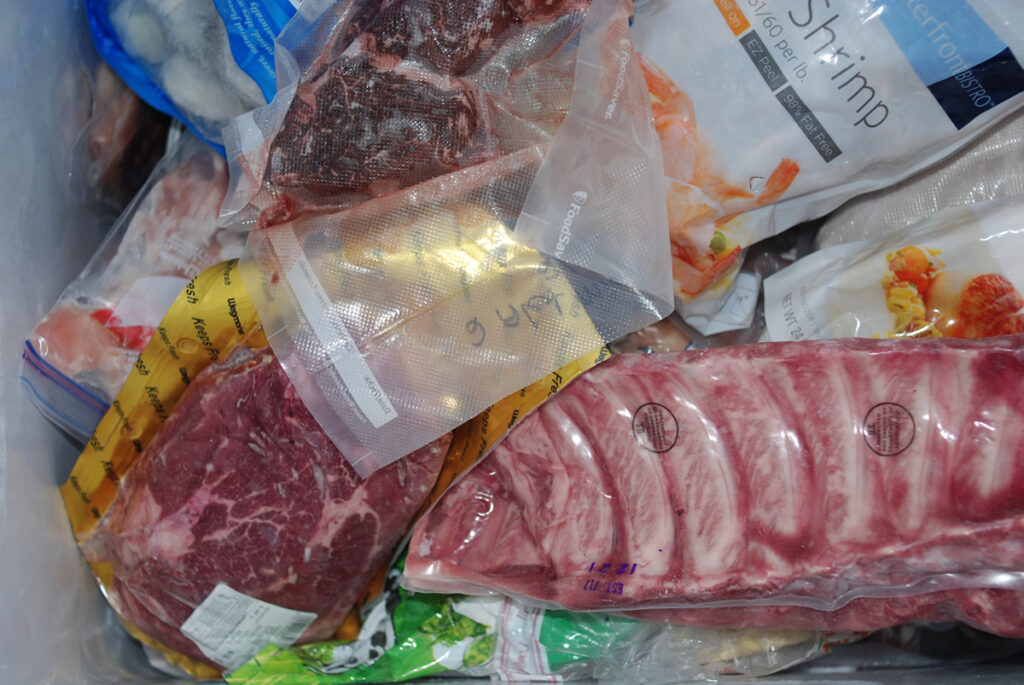
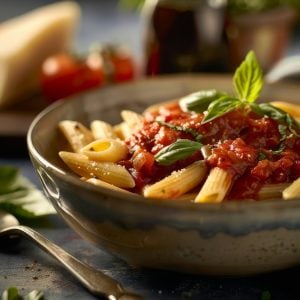
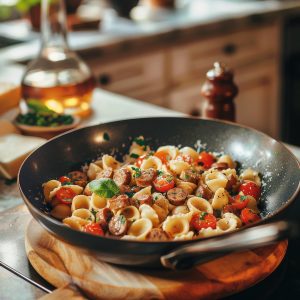


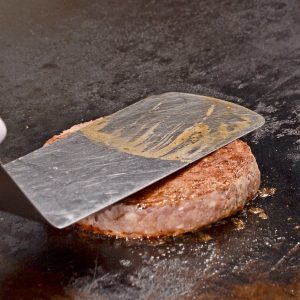
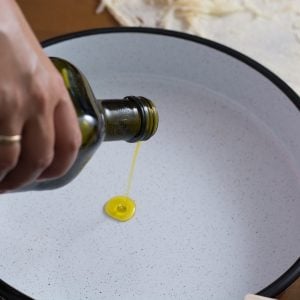

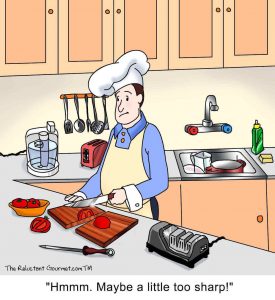
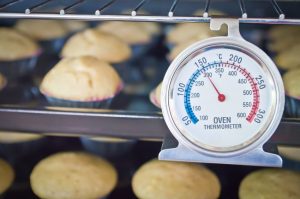
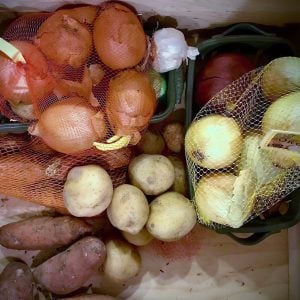

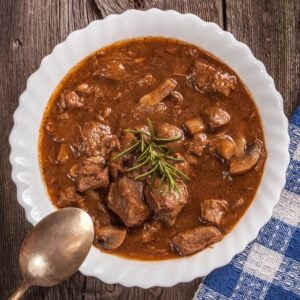


19 Responses
According to some jurisdictions this is cumulative time, so it must include the time it takes to bring food home from the store as well as how long it sits on the counter, before and after refrigeration. If you check this out in “The Modernist Cuisine,” you’ll see how they go through the politics of the “danger zone” and show how meaningless it is. It’s another of those short-cut rules in food safety that in the end are misunderstood by chefs and public health officials alike.
Great points Peter, thank you. – RG
As for the flavor of salt getting stronger over time, I’ve noticed preserved meats — ham, corned beef, pastrami — don’t freeze well, especially after they’ve been sliced. When thawed the taste can be unpleasantly strong.
Hi Drew, thanks for this tip. – RG
Just found you while looking for a Caesar salad dressing recipe (which I’ll be using tonight) and am adding your blog to my reader! Love it!
Thanks Agatha and let me know how the Caesar salad works out. – RG
What about raw meat like chicken breast or a good steak? Other than using the vacuum method or removing the air in the bags is there any other good tips like adding a seasoning or something else before bagging/freezing and how long is to long to keep meat frozen before using it?
Hi Ed, yes, you can preseason–I wouldn’t freeze longer than 3-6 mos at the outside. – RG
Potatoes. I cannot figure out how to properly freeze potatoes. Any suggestions or is just one of those products I shouldn’t freeze?
Yes, I would advise against freezing potatoes. They turn dark and their texture gets weird. Saying that, I wonder how french fries are frozen to perfection. I’ll have to look into this. – RG
That would be the McDonald’s method for making fries: http://aht.seriouseats.com/archives/2010/05/the-burger-lab-how-to-make-perfect-mcdonalds-style-french-fries.html
Blanch, quick fry, then freeze. Then a final fry from frozen. (He said alliteratively.)
Can you freeze stew after 2 days of being in the fridge?
Hi Denise, I do but I am not a food scientist so I would be “reluctant” to say it is completely safe. There is some great information at the USDA site on freezing at http://www.fsis.usda.gov/factsheets/focus_on_freezing/index.asp that I would recommend you check out. Hopefully there is an expert out there who can confirm this is an ok procedure. – RG
i want to make a roasted root vegetable dish for thanksgiving and i wanted to do it in advance. can that dish be frozen for a week?
Ruby, I don’t see why not. According to a website I found on the Internet, https://www.freezeit.co.uk/can-you-freeze-roasted-vegetables/ :
Yes, you can freeze roasted vegetables for up to 6 months. Mix your vegetables together, season and roast in the oven. Once cooled, you can bag them up and store them in the freezer.
I am going to be baking pies/desserts for a restaurant. I plan to only bake every 3 days. What is the best way to freeze, refrigerate, thaw (covered/uncovered)?
According to an article in the Washington Post:
Be they baked or not, whole or in slices, first place the uncovered pie on a baking sheet and freeze until solid, about two hours, before wrapping in a layer or two of plastic wrap. You can then put the pie in a layer of foil, a resealable bag or an airtight container for extra insurance from freezer burn if you want.
Hi, I’m wondering about a stew that I set out on the front step to freeze (I live in Canada where such strategies work). It was frozen, but then we had an unexpected warm spell and it thawed. I put it in the refrigerator while it was still cold, but didn’t have a use for it that day or the next, so I put it in a freezer-safe container and put it in the freezer. Now I’m worried that it’s not safe to eat because it thawed and then I re-froze it. I know you can’t do that with raw meat, but what about cooked meat and vegetables? I could really use some advice before Sunday, because that’s when I could thaw it again and serve it, and I don’t want to make anyone sick! Thanks!
According to the USDA:
Yes, it is safe to refreeze any food remaining after reheating previously frozen leftovers to the safe temperature of 165 °F as measured with a food thermometer. If a large container of leftovers was frozen and only a portion of it is needed, it is safe to thaw the leftovers in the refrigerator, remove the needed portion and refreeze the remainder of the thawed leftovers without reheating it.
Hi again, I should have read the other comments before I posted my question about refreezing my stew. I went to http://www.fsis.usda.gov/factsheets/focus_on_freezing/index.asp
and found my answer. Thank you!
Hey Im a young man cooking for my family. Essentially I’m making a tomato an mascarpone sauce for pasta. My question is will the sauce be ok after freezing? I don’t want to see it separate and it’s a massive waste of money and ingredients. Thank you to anyone who takes the time to reply to this 🙂
I found this on the Internet: Mascarpone cheese can be frozen and is best kept in the freezer for up to 2 months. However, the liquid can separate from the solids. This may result in the cheese to crumble when thawed, becoming less enjoyable. To restore the texture of the cream cheese simply whip the thawed cheese.
Hope this helps.
I have found that if I use the same type of food (like diced ham) I will cut up a large portion in the size that I prefer, put them in either a freezer bag or those little Dollar Tree storage containers, and freeze them. It saves a lot of time when I need to throw something together in a hurry, or I end up having surprise visitors.